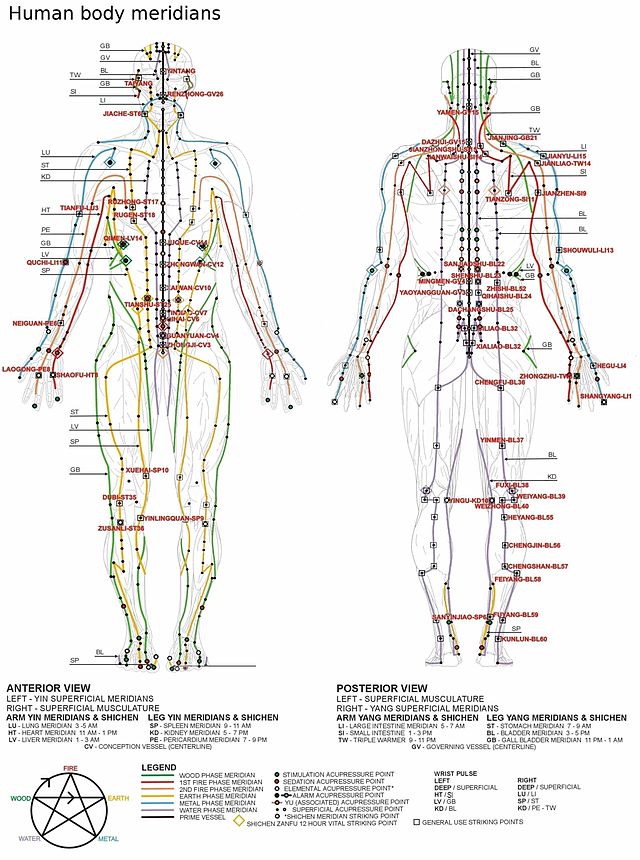Like a lot of people these days, I have suffered from a host of digestive issues.
For years I suffered from an autoimmune disease that interfered with my digestion severely.
Western medicine did not help me and, honestly, could only barely describe what was happening to me. In fact, I still like to joke that all it could do is repeat my symptoms back to me in Greek and Latin.
Luckily, I found some help and relief from Traditional Chinese Medicine (TCM), and acupuncture. Acupuncture helped alleviate my symptoms, but acupuncture is only one tiny part of TCM, and it was only a little part of what it took to get me well.
Every time I would go for an appointment, I would pick the brain of my acupuncturist and friend Jon J.P. Cacherat. I asked him all kinds of questions, because I wanted to understand inside and out what was happening in my body and what I could do to help my digestion.
Now, he and I would like to pass that information on to you.
Jon Cacherat, (M.S., L. Ac., and Dipl. Ac.) has an active acupuncture practice in Denver, Colorado and you can find him on his website here. Here’s a condensed version of our interview:
Kathryn Muyskens: Let’s start with something general. How does TCM understand digestion and digestive issues?
Jon Cacherat: To understand how TCM conceives digestion we need to first talk about the concept of “Qi.” Qi is perhaps best defined as energy, or your body’s life force. Each organ in the body has it’s own Qi, and each type of Qi has its own job to do in the body’s ecosystem.
Foods also have their own Qi, and digesting foods involves converting that food’s Qi into your own Human Qi. Digestion for TCM starts with the Stomach Qi. The Stomach Qi’s job is to “ripen” the food, or in other words, to break it down. After the Stomach Qi is done, the job is handed off to the Spleen Qi.
KM: Wait, the Spleen Qi? But the spleen isn’t part of the digestive system, is it?
JC: This might sound strange to our Western minds because in Western medicine we know the spleen is a lymphoid organ that has nothing to do with digestion. But in TCM the literal organ’s function is not always identical with the organ Qi’s functions. Chinese Medicine regards health and physiology through a philosophical construct borne from pre-scientific ages, a good deal of its terminology employs metaphor. As we learn more about interpreting ancient Chinese dialects into modern English, we are also learning how to translate these concepts into correlations with current medical knowledge. For the sake of avoiding confusion in this interview, we can just call it “Digestive Qi.”
KM: Okay, so what does the Digestive Qi do?
JC: Digestive Qi is responsible for extracting the Qi from the food and transforming it into the appropriate Qi in the body. Different foods will have different energies and support different organs and different Qi in the body. In order to do that, the Digestive Qi has to first cook the food and then with the help of just a tiny bit of Kidney Qi, it transforms the food’s Qi into your own Human Qi.
KM: So, when we have digestive issues, what is happening to our Qi?
JC: Well, different digestive issues may have different explanations, but generally if the Spleen Qi is stressed out, weakened or drained somehow, then the Spleen may be allowing some energies into the body that it normally wouldn’t. In TCM, every food has its own energetic qualities. For instance, fruits are generally “cooling,” and meats are mostly “warming.” Some foods, like dairy and bread can be “dampening” and damp foods are generally considered hard on the Digestive Qi. If we eat too many damp foods, the Spleen will become drained and then might let some of that dampness into the body’s ecosystem.
To translate it into Western terms, that would mean inflammation.
KM: I see. So how can we keep our Digestive Qi healthy and happy?
JC: In Chinese medical philosophy, the best diet would be one that is balanced and as clean as possible. Clean meaning whole foods, not processed, preferably local, seasonal and organic. Minimizing the damp foods like dairy, wheat, beer, and sugar will make life easier on the Spleen. And since the Spleen has to cook all the food you eat before it can extract the Qi, eating cooked food will take some of the burden off digestion. Even though eating some raw foods is healthy and important, too much raw food can make the Spleen tired and weak.
KM: Are there any specific foods that can help our Digestive Qi?
JC: Yes. As a rule of thumb, orange and yellow foods will benefit the Digestive Qi, especially something like sweet potato. There are also some specific foods to avoid. Ice cream would likely be the worst offender. It is cold, damp, dairy and sugar. Very hard on digestion. The ancient Chinese acupuncturists would have been shocked by this modern concoction.
KM: These are all really helpful tips! But just because I’m curious I want to ask one more question. What does TCM have to say about all the diets that are out there now—like vegan, vegetarian, Paleo, raw food, etc?
JC: Chinese medicine is primarily interested in balance. No food is strictly bad for you, but foods will all have their qualities that will effect the balance of qualities within your body. If the body is already hot, eating a lot of warming foods may worsen existing issues.
TCM does consider meat to be beneficial, at least sometimes. So TCM would not strictly recommend a vegan or vegetarian diet. And as we have talked about before, too much raw food is hard on the Spleen Qi. TCM would also recommend grains, unlike the Paleo diet. So, really none of these trends line up with exactly what Chinese medicine would recommend. Chinese medicine would focus on a balanced diet. Eat everything in moderation, get the best quality ingredients you can, and cook them lightly yourself.
*This interview has been edited and condensed.
~
~
Love elephant and want to go steady?
Sign up for our (curated) daily and weekly newsletters!
Author: Kathryn Muyskens
Editor: Emma Ruffin
Photo: Wikimedia Commons











Read 0 comments and reply